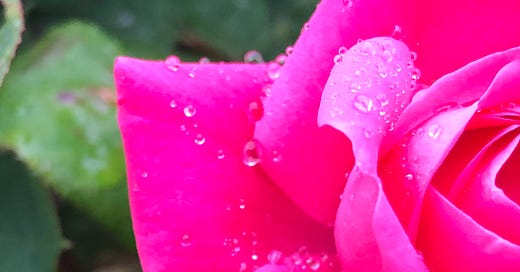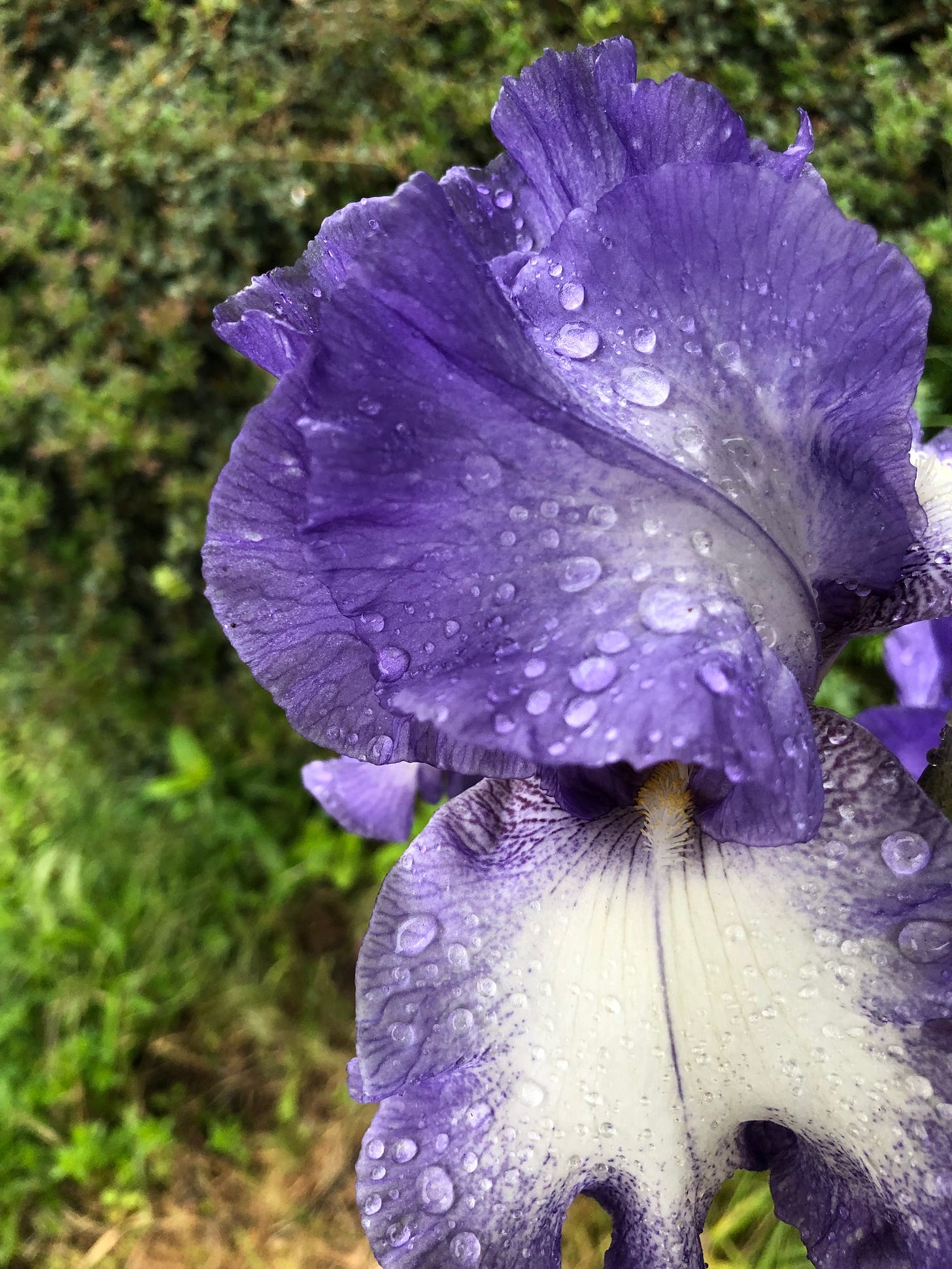Today, after the news of 18 children and one adult dead in Texas, after I sobbed and sang in my kitchen, thinking of all the small feet I have held in my hands as a nanny, after I forced myself to block social media on my phone and put on my socks and shoes and opened my umbrella, I went for a walk.
I didn’t want to go for a walk today.
I opened my umbrella and turned left, walking down my Wallingford block. Three blocks away is a cooperative preschool. How many schools are in Seattle; how many children? I walk past a middle school nearly every day, but today I am walking in the opposite direction.
I pass two houses, one blue and one with wood siding, and then the newer house built from metal with the raised garden where two worn tulips with variegated petals refuse to succumb to the passing of their season. Across the street is the giant lot filled with a concrete foundation, stacks of lumber and metal spikes poking out of concrete slabs, soon to be a row of apartments or condominium…
Keep reading with a 7-day free trial
Subscribe to Gathering to keep reading this post and get 7 days of free access to the full post archives.




